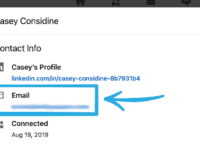What You Need to Know About Trade ETFs

If you’re interested in learning how to invest in ETFs, you’re certainly not alone. ETFs (Internet-exchange traded funds) have become very popular in recent years, partly because they allow investors the opportunity to take advantage of emerging market trends without buying large chunks of stocks themselves. Investing in ETFs also offers an investor the ability to diversify his or her portfolio, and to avoid paying taxes on dividends that may be received from stocks that are held within the fund itself.
ETFs also offer a number of different risk/reward profiles and can help an investor diversifies across many different asset classes. Understanding how to invest in ETFs can help you obtain a good asset allocation for the future, and can also help you avoid paying too much attention to one area – and thus allowing you to enjoy a more balanced portfolio.
So what exactly is an ETF? An exchange-trade fund is essentially a class of stock or security that trades on the stock market. ETFs were designed so that individual investors (called investors) could invest in multiple different stocks or securities and gain exposure to different markets and companies at the same time. In essence, you could think of ETFs as being similar to mutual-funds, except that ETFs trades are conducted electronically on the World Wide Web.
ETFs were created in order to provide investors with the ability to trade stocks and securities electronically – to do this, ETFs were created by large investment firms, who were able to leverage the power of the internet in order to offer cheap trading and minimal commissions to their customers.
Many people who Trade ETFs choose to do so because they don’t want to pay any commissions, which often equate to substantial brokerage fees. This is especially true if you intend on buying and/or selling a large amount of stocks or other securities – because if you pay a broker you’re likely to wind up paying thousands in additional charges. If you trade etfs, you’ll never have to pay these fees, because you’ll be buying and selling small amounts of the same stock or security via your computer – eliminating many brokerages out of the picture altogether. In addition, since you’ll be investing your own money, you’ll also avoid the often hefty “service” fees that brokers typically charge.
Because ETFs allow you to trade via the internet, you’ll be able to trade your portfolio virtually anywhere in the world that has access to a reliable, high speed internet connection. And because ETFs use an “interbank” network to process your trades, your investments are guaranteed to be secure – and if anything should happen to go wrong with your order, for example, it won’t affect the rest of your portfolio. This means that you don’t need to spend time worrying about losing your shirt because some market order went bad and caused you to lose money. In fact, if your market orders ever go wrong – which is bound to happen with any type of trading software, since no two trading systems are alike – you’ll have absolutely nothing to worry about. Before investing, you can check other information like quote dividends at https://www.webull.com/quote/dividends.






